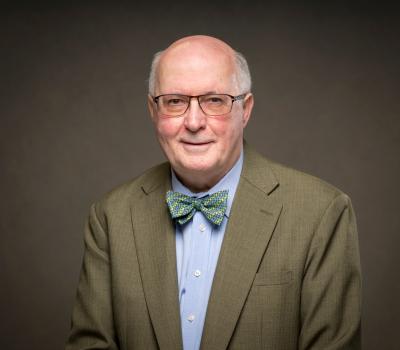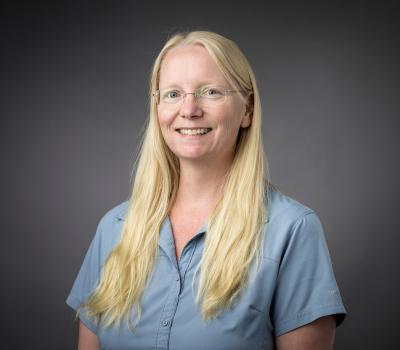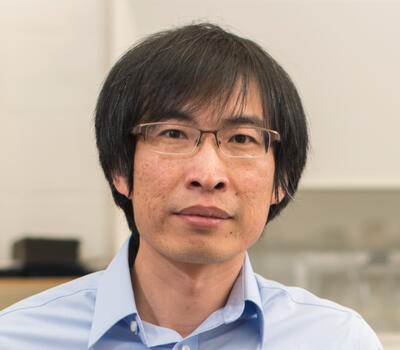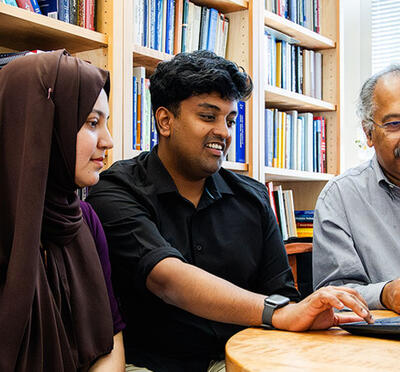The College of Engineering at Oregon State University is a proven leader in research, expanding knowledge and creating new engineering solutions in fields such as artificial intelligence, robotics, advanced manufacturing, clean water, materials science, sustainable energy, computing, resilient infrastructure, and health care.
In the 2021-2022 fiscal year, the College of Engineering notched its highest-ever total in research funding, with $75.8 million in awards — an increase of more than 17% over the previous record of $64.6 million, set the year before. With 321 new and continuing awards from 128 agencies (13 of them awarding $1 million or more), 140 faculty members were chosen as lead principal investigators.
Among the notable new sponsored projects:
Geoff Hollinger, associate professor of mechanical engineering and robotics, is leading a large team of researchers to develop a multi-arm robotics platform capable of performing complex manipulation tasks, such as cleaning the hulls of boats and performing routine maintenance of piers in challenging, low-visibility environments. The team, funded by a $6 million Office of Naval Research grant, will develop algorithms for coordination of the semiautonomous arms, build reactive sensor systems to provide tactile feedback, and create decision-support modules to provide easier control by human operators.
Nordica MacCarty, associate professor of mechanical engineering and the Richard and Gretchen Evans Scholar in Humanitarian Engineering, is working to reduce harmful emissions from wood- burning stoves, a primary source of heat in Native American communities and in low-resource areas in the United States. MacCarty will work with other Oregon State researchers, including Chris Hagen, professor of energy systems engineering and interim director of research at OSU- Cascades, and David Blunck, associate professor of mechanical engineering, in collaboration with tribal and industry partners to develop a firebox retrofit that uses turbulent jets of air to improve combustion efficiency, even under suboptimal conditions. Funding for the project comes from a $2.5 million grant from the Department of Energy.
Haori Yang, associate professor of nuclear science and engineering, is developing sensors to monitor nuclear waste from within storage vessels. With the storage of nuclear waste at Yucca Mountain on hold, U.S. nuclear power plants have resorted to storing waste on-site in dry storage casks. Ensuring the integrity of these canisters is critical. The Department of Energy has awarded Yang $640,000 to design externally powered sensors that can be placed inside the canisters and read from the outside. Such sensors would allow the monitoring of internal conditions difficult to assess with external sensors alone.
The National Science Foundation awarded Andre Barbosa, associate professor of structural engineering, $530,000 to develop a building-design paradigm to improve earthquake resilience while integrating sustainable building practices. The new paradigm will be applied to the design of mass timber structures.
With $500,000 in funding from the Department of Energy, Goran Jovanovic, professor of chemical engineering, is developing a microchannel device for membrane-less recovery of lithium from unconventional sources, such as byproducts of shale gas extraction. Lithium is a critical element for advanced energy storage systems.
Matthew Johnston, associate professor of electrical and computer engineering, is creating a wearable device to assess levels of anti-epileptic medication, the dosage of which is notoriously difficult to manage. The device sits in the mouth like an orthodontic retainer and monitors saliva in real time. The project is funded by a $205,000 grant from the National Institutes of Health.







